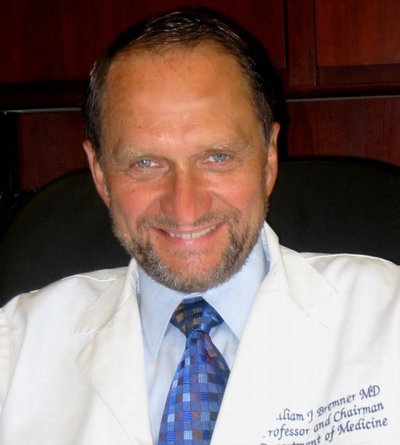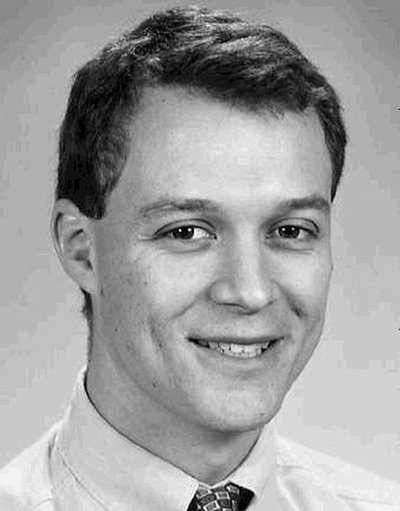October 12, 2006
Dept. of Medicine to start new male reproductive health program
By Roberta Wilkes
Department of Medicine
The Department of Medicine has received a new five-year K12 grant from the National Institute of Child Health and Human Development to create a multidisciplinary Male Reproductive Health Research Training Program for internists, endocrinologists, and/or urologists.
Department Chair William J. Bremner is principal investigator and director of the program. Dr. John K. Amory, associate professor of medicine in the Division of General Internal Medicine, is assistant program director.
This new training grant enhances the University’s reputation as a leading center of basic and clinical research in male reproductive health, established by the existing UW Center for Research in Reproduction and Contraception. There is a training program similar to the new one in the Department of Obstetrics and Gynecology, the Women’s Reproductive Health Research Career Development Program.
“This is important because it brings together multiple disciplines to study the problems of male reproductive health,” Bremner said. “For the UW, the grant recognizes the expertise of our group in the field. We were one of two funded nationally for this new NIH program. The other is the University of California, San Francisco.”
The new program will provide training to enable young physicians to establish careers as independent investigators in the field of male reproductive health. Such preparation is generally not available during residency and fellowships.
This will include salary support, a two- to five-year mentored experience with an established investigator, and formal coursework appropriate to each scholar’s interests. Scholars must hold an M.D. or M.D./Ph.D. and must have completed residency and/or fellowship training. Junior faculty at the UW and elsewhere in the country are eligible to apply. Three scholars can be supported at a time.
“We are thrilled to have this opportunity to enable young physicians to bridge the gap between the end of training and the beginning of their productive, independent research careers,” Amory said.
The program has 12 mentors drawn from six departments, each with extensive research experience, a strong record of mentorship, and outstanding clinical, translational, and basic science expertise in the field of male reproductive science.
A professor in the Division of Metabolism, Endocrinology and Nutrition, Bremner holds the Robert G. Petersdorf Endowed Chair in Medicine and directs the UW Center for Research in Reproduction and Contraception. His research is focused on the endocrine control of male reproduction, including the development of male hormonal contraceptives, and he will serve as a mentor in the new program. Amory studies novel agents for the treatment of male hypogonadism and male contraception and will also be a mentor.
Other mentors in the program and their areas of research are:
Drs. Bradley Anawalt, medicine/general internal medicine), male reproductive endocrinology; Joseph A. Beavo, (pharmacology), the role of phosphodiesterases in male reproduction; Richard E. Berger, (urology), pelvic pain, male infertility and impotence; Edward J. Boyko, (medicine/general internal medicine), epidemiology of chronic disease; Robert E. Braun, (genome sciences), molecular aspects of gametogenesis; Bertil Hille, (physiology and biophysics), sperm physiology; Alvin M. Matsumoto, (medicine/gerontology and geriatric medicine), androgen action, prostate hypertrophy, and androgens and aging; G. Stanley McKnight, (pharmacology), protein signaling in male reproduction; Peter S. Nelson, (medicine/medical oncology), gene expression during prostate cancer tumorogenesis; Stephen R. Plymate, (medicine/gerontology and geriatric Medicine), IGF and male reproduction; and Robert A. Steiner, (obstetrics and gynecology and physiology and biophysics), molecular neuroendocrinology.




